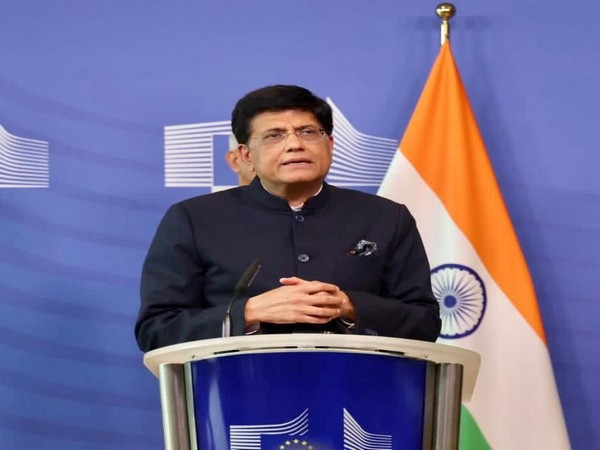
New Delhi: Union Minister for Commerce and Industry, Piyush Goyal said that the India-EU FTA negotiation is progressing well.
He made this remark while addressing the media after the 1st India-EU Trade & Technology Council (TTC) meeting in Brussels, Belgium, according to a statement from his ministry. Goyal said that the Trade and Technology Council is helpful as it is supplementing the free trade agreement negotiations and the trade deal will make the India-EU relationship the defining partnership of the century.
In the India and EU Leaders' Meeting held in Porto on May 8, 2021, an agreement was reached for resuming negotiations for a balanced, ambitious, comprehensive and mutually beneficial free trade agreement.
Piyush Goyal said that India is engaging with the EU on Carbon Border Adjustment Mechanism (CBAM) as it is not the EU's intention to create a barrier to trade but to find a way forward towards sustainability as part of collective efforts. He stressed that India and the EU are working together to find the right solution to the CBAM issue.
According to reports, the European Union (EU) has announced the implementation of its Carbon Border Adjustment Mechanism (CBAM) from October 2023, which will impose a carbon tax on non-environmentally sustainable products imported into the EU.
Further, Goyal said that India's tariffs are very often misconstrued to be very high on most items, raw materials, and intermediates but in reality, the duties are very low. The Minister said that the duties on technological items which are helping the Indian economy grow are very low.
He said that the actual applied rates of tariffs are lower than the agreed bound rates at WTO. The bound rate is the maximum rate of duty (tariff) that can be imposed by the importing country on an imported commodity.
Goyal mentioned that the political guidance received from the Prime Minister Narendra Modi and the President of the European Commission Ursula von der Leyen has been truly encouraging in setting the path for outstanding engagement. Goyal added that both India and the EU are open market economies, vibrant democracies and pluralistic societies driven by the common interest of security, prosperity and sustainable development.